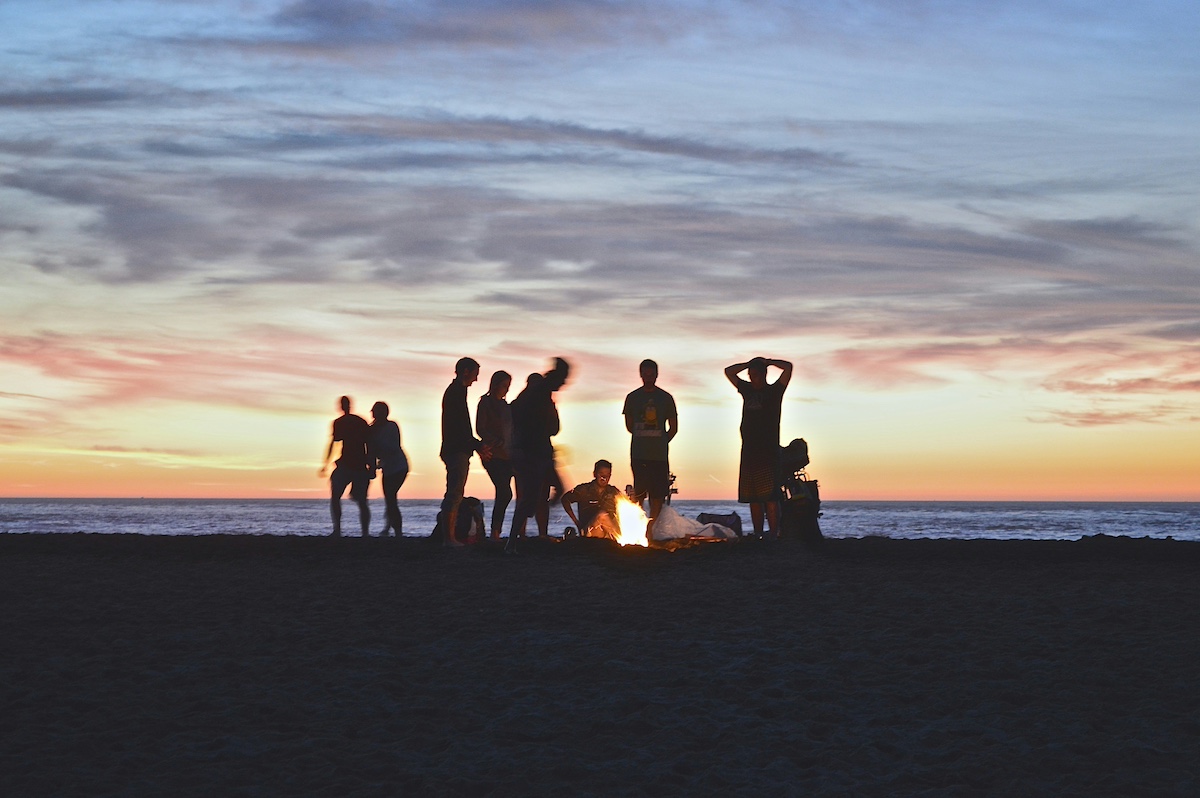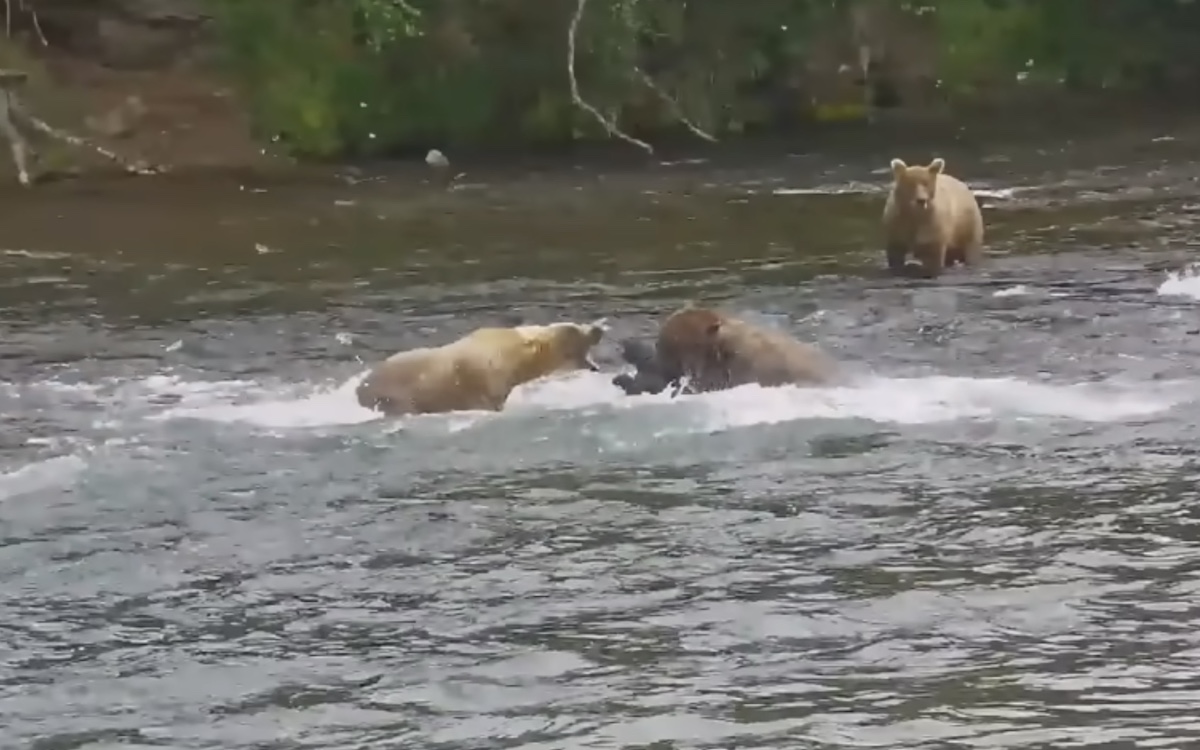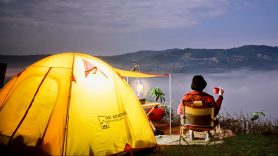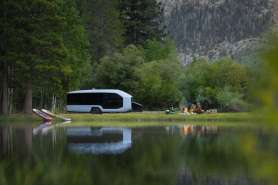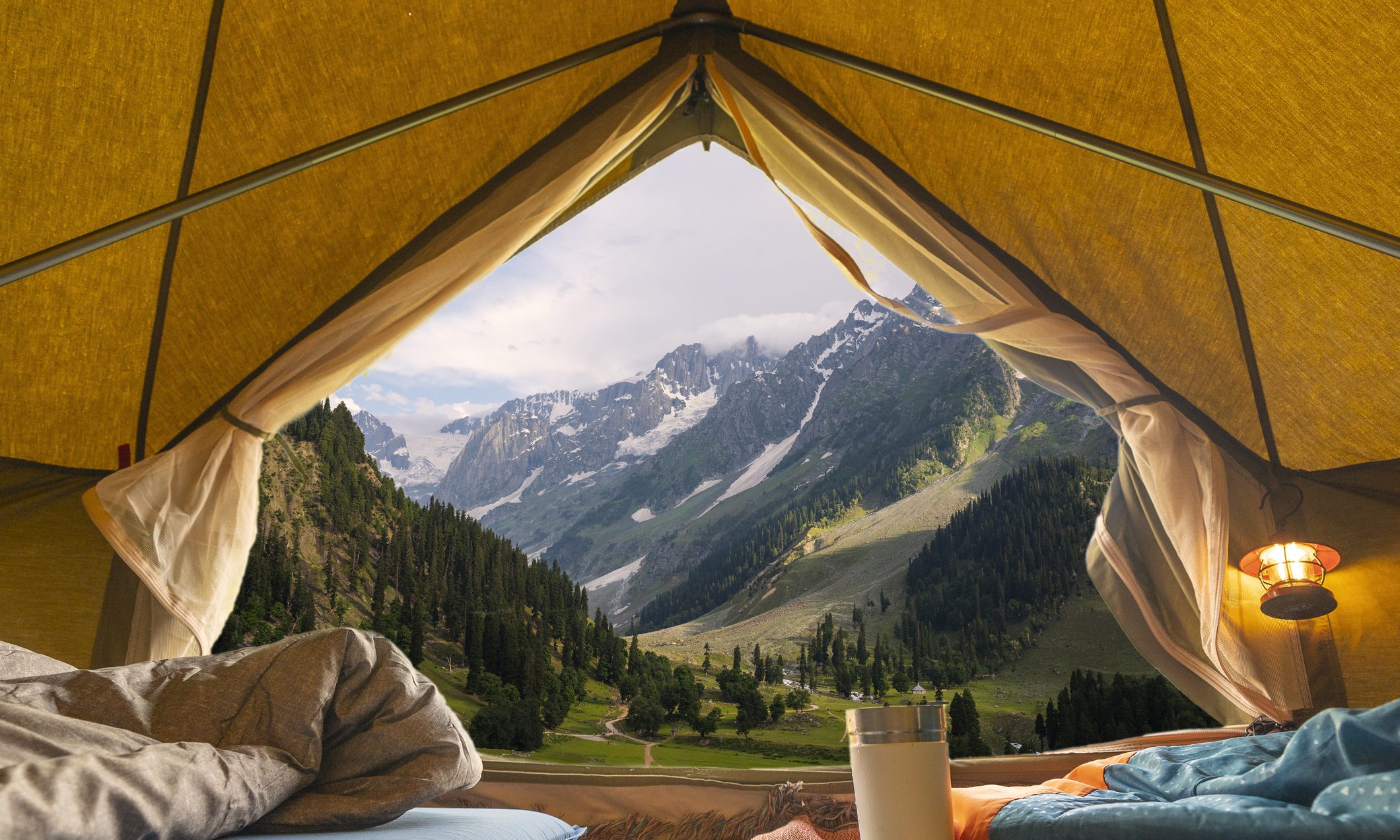

If your next camping trip takes you on a cross-country flight, stuffing a bulky tent into your luggage just might not be practical. Or maybe you haven’t invested in a four-season family tent just yet and would like to try before you buy. If you’re on the fence about whether to bring or borrow, here’s what you need to know about renting a tent.
Videos by Outdoors with Bear Grylls
How do you rent tents?
Most serious campers own a tent lineup to cover a wide range of group sizes and weather conditions. They’ll usually jump through hoops to transport a trusted tent rather than roll the dice on a shelter that’s been put through the wringer by other renters. For occasional campers, though, renting a piece of gear once a year instead is relatively common.

But booking a tent rental adds another piece to the logistics puzzle when planning a camping trip. While you’ll typically have to reserve a campsite directly through the park or campground, these locations don’t often offer the option to rent tents or other camping essentials. You’ll likely need to rent from a local outfitter or nationwide gear company.
REI’s rental program allows adventurers to pick up tents and other camping gear at brick and mortar locations in some of the most popular outdoor recreation destinations throughout the country. This is one of the most convenient and affordable options if available where you’re heading, but hours of operation and availability may be limited.
Other companies such as OutdoorsGeek, LowerGear Outdoors, Xscape Pod, and Arrive Outdoors can ship tents and other outdoor gear directly to your destination. Once the rental period is over, you simply slap a prepaid return shipping label on the box and drop it off at a shipping partner location.
What are some common tent rental policies?

What if a zipper breaks, a pole snaps or a critter claws its way into that tent you’re renting at a premium? Each rental company has slightly different policies, but generally, you could be on the hook for the full retail price of the tent if you return it with anything beyond normal wear and tear. You can opt to add gear insurance from most rental companies to minimize risk for a nominal fee.
If inclement weather forces you to ditch your plans at the last minute, you’ll probably pay a cancellation fee. If you return your tent after the deadline, you’ll probably pay a late fee. And if you send it back damp or dirty, you’ll probably pay a cleaning fee.
Be sure to read all terms and conditions before renting a tent.
How much does renting a tent cost?
The brand and size of tent you choose will affect the rental price, but you can get a solid four-person tent (that would retail for $350-$500) for a full week in the $50-$100 range from most companies. If you’re not renting from a location where you can pick the tent up in person, expect to pay another $50 for shipping.
Many rental companies offer gear packages, so you can also get sleeping bags and other camping essentials along with your tent and save by bundling these items together.

Some companies allow you to buy the tent if you like it and will deduct the rental fee from the final price. This is a nice option if you want to test drive gear before you splurge.
Renting a tent isn’t overly expensive. But if you struggle to take care of gear or stick to a schedule, you could rack up a lot of fees that end up costing you more in the long run.
When should you rent a tent or BYO?
If you already own a quality tent built for the conditions you’ll be facing and can transport it to your camping destination without too much trouble, taking it with you is a better bet than renting.
But renting can be a much better option in some scenarios:
- You own a tent but need one designed for different conditions or a larger group.
- The inconvenience of getting your tent to the destination outweighs the cost of renting one.
- You don’t own a tent and don’t have the space or means to store one.
- You only rarely use a tent so buying one isn’t worth the investment.
- You’d like to test out a couple options before buying a tent.
Do your research and crunch some numbers to make the best choice for your next camping trip!
